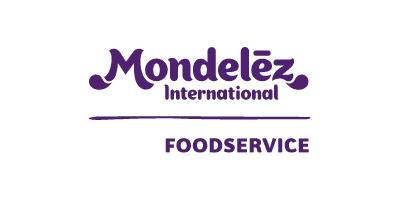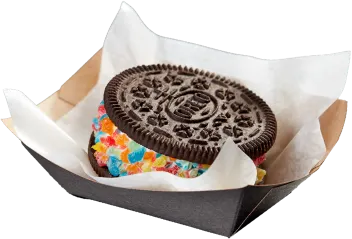An Authentic Sustainability Strategy Is Essential, Rewarding and Challenging
For the convenience services industry, the interest in sustainable solutions has recently intensified, after taking a backseat during the COVID-19 pandemic. Once seen as a trend, sustainability is now a workplace refreshment issue that is here to stay. Clients are asking for sustainable products, and office coffee service (OCS) operators must respond with solutions or face the risk of losing business.
In a recent Automatic Merchandiser/VendingMarketWatch.com webinar, Jennifer Ridnour, client services specialist at First Class Vending in Los Angeles, made it clear that sustainability is a critical issue among her convenience services clients. “It’s a top-level item for our clients, and it’s important to their employees,” she said. “We need to set an example as a company, being as sustainable as possible in our own business practices,” noted Ridnour, adding that First Class Vending makes extensive use of solar energy at its facilities and uses hybrid trucks for deliveries. “We need to lessen our carbon footprint before we promote the idea of being sustainable to our clients,” she said. “Our clients are paying attention.”
Linda Saldana, CEO of Seventh Wave Refreshments in Atlanta, confirmed that the issue of sustainability in the workplace isn’t just a West Coast phenomenon. “When we were having this sustainability conversation pre-pandemic, we could call it a trend,” she said. “It is no longer a trend; it is a conversation that is here to stay.”
Back to the Forefront
For the convenience services industry, the interest in sustainable solutions has recently intensified, after taking a little break during the height of the COVID-19 pandemic. Justin Steuber, customer success director at Associated Services in the San Francisco area, pointed out that the surge of interest in sustainable products was strong in 2019. “Pre-pandemic, we had a lot of customers shifting over to sustainable packaging and products, but then it really changed during the pandemic as everyone switched to individual packaging, single-serve everything. Now, there is a great deal of interest in sustainability,” he said.
Dave Mandella, vice president of sales at American Food & Vending, operating in 36 states, said he is seeing the same surge in interest around the country. “Sustainability is a major issue right now, and clients are asking for a lot for sustainable products. Unfortunately, eco-friendly products represent one of the biggest supply challenges we have,” said Mandella. On the positive side, Mandella says his clients do not complain about prices for sustainable products, even though they can be significantly more expensive than traditional products.
An Issue that Must Be Addressed
While that conversation presents both opportunities and challenges for operators, the numbers indicate that sustainability is an issue that operators must address. A Forbes and Statista.com study, published by Constellation, the nation’s largest producer of carbon-free energy, revealed the following:- 77% of people believe it’s moderately to very important that companies be sustainable and environmentally responsible.
- 76% of people expect companies to support recycling.
- 33% of adults in the U.S. report they’re spending more time thinking about the climate than they did before COVID-19.
- 68% of consumers say they’ll actively seek brands that reduce their impact on the environment.
- 61% say that energy-efficiency is important.
Authenticity Is Important
When approaching clients about sustainable solutions, it’s important to be authentic. Olivia Powell writes about customer experience for CX Network, an online community for global customer experience, service and insight. “If you fail to engage with customers in the correct way surrounding your sustainable business practices, you can risk your brand's reputation. Being inauthentic can lead customers believing your company to be opportunistic rather than sincere,” Powell wrote in an article earlier this year. “If customers believe a brand's efforts to be 'greenwashing,’ the name given to superficial sustainable practices used as a marketing ploy rather than an effort towards change, the company risks losing both their loyalty and their business.”Powell also stressed the importance of communication. “By integrating sustainability into customer communication strategies, this allows your company to re-engage customers with your environmental efforts. This could be through providing customers with data about how their purchases positively contribute to sustainability efforts, or by being transparent with what measures your brand is taking to reduce the negative effects it may have on the environment,” she wrote. “It is becoming clear that customers want to buy products from companies that they believe contribute to positive social change, and so companies must meet this need or risk losing customers.”
Sensational and Sustainable Solutions
Suppliers are stepping up with a multitude of sustainable solutions for the workplace, creating some excellent opportunities for operators that go beyond eco-friendly products such as cups, plates, utensils and other kitchen paper products. Fair trade coffee is another responsible avenue toward sustainability. In many ways, these products are just the training wheels for clients who seek sustainable solutions.
Technology leaders have ushered in a new generation of premium products and equipment for operators that offer exciting paths to sustainability for their clients. Some examples include:
- Marco Beverage Systems has teamed up with roasters to provide bag-in-box cold brew, eliminating much of the carbon footprint associated with storing and transporting kegs. The cold brew flows from Marco’s countertop POUR’D dispenser.
- ColdSnap’s frozen beverage machine is a CES Innovation Award-winning device that uses fully recyclable pods. Different pods produce different frozen treats, which are made by the ColdSnap machine.
- ānsa coffee’s micro roaster allows operators to provide freshly roasted coffee to their clients, right in their own breakrooms – a sustainable farm-to-office path.
- In the premium point-of-use water space, multiple options are available; all of which are considerably more sustainable than bottled water in any format. Marco Beverage Systems offers FRIIA, a sleek and stylish font. offers their own versions of designer-friendly single-serve dispensers, utilizing reusable glass bottles that can carry the client's logo and branded message of its commitment to being environmentally responsible.
Sustainability Is Here to Stay
In a Forbes article last month, Mario Paysse, a member of the Forbes Business Council, wrote that “Sustainability as a fundamental and critical business practice is here to stay, and the best companies are embracing it as leverage for new growth, revenue and the potential to positively impact society. Just as in the old adage of ‘adapt or die,’ the paradigm continues to shift, and the value of adaptation is real. The companies that do not engage will suffer and have profitability loss, whereas the ones that do will greatly benefit both their companies and our environment.”Read more on office coffee service trends at Mondelēz International’s insights channel
Stay Top of Mind With Operators
Read about 6 Trends Changing and Challenging the Foodservice Status Quo in 2022. Read Article
Recent Posts
All in Good Time: What Makes for a Winning LTO in 2021?
Chefs Cook Up the Future of Fast Casual Restaurant Operations
Chocolate 2.0: The Future of Chocolate Snacks & Desserts
Delivery-Only Restaurants Steer Foodservice in New Direction
Posts by Topic

Join our email list and be the first to know when we drop new articles, trends and insights with updates delivered directly to your inbox.




